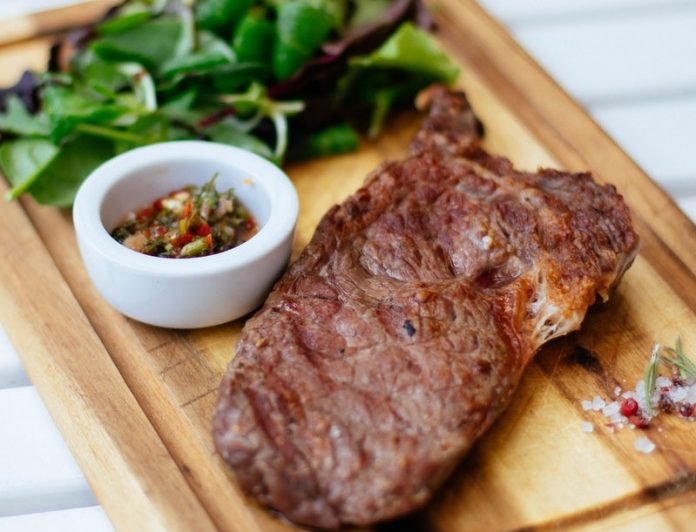
In a new study from Dana-Farber Cancer Institute, researchers confirmed the strong link between red meat and colon cancer.
They identified specific patterns of DNA damage triggered by diets rich in red meat.
Eating less red meat is standard medical advice for preventing colorectal cancer, but the way it causes cells to mutate has remained unclear, and not all experts were convinced there was a strong link.
In the study, the team sequenced DNA data from 900 patients with colorectal cancer, who were drawn from a much larger group of 280,000 health workers participating in a years-long study
They found a distinct mutational signature—a pattern that had never before been identified but was indicative of a type of DNA damage called “alkylation.”
Not all cells that contain these mutations will necessarily become cancerous, and the signature was present in some healthy colon samples too.
The mutation signature was strongly associated with intake of red meat, both processed and unprocessed, prior to the patient’s diagnosis of cancer, but not with the intake of poultry, fish or other lifestyle factors.
The team says with red meat, there are chemicals that can cause alkylation. The specific compounds are nitroso compounds that can be made from heme, which is plentiful in red meat, as well as nitrates, often found in processed meat.
The mutation patterns were strongly linked to the distal colon—the lower part of the bowels that leads to the anal canal, which is where past research suggested colon cancer linked to red meat mostly occurs.
Patients whose tumors had the highest levels of alkylation damage had a 47% greater risk of colorectal cancer-specific death, compared to patients with lower levels of damage.
The team says future work might help doctors identify which patients are genetically predisposed to accumulating alkylation damage, then counsel them to limit their red meat intake.
If you care about colon cancer, please read studies about how to protect yourself from colon cancer and findings of this vitamin level in the body linked to your colon cancer risk.
For more information about colon cancer prevention and treatment, please see recent studies about using this common drug before diagnosis may lower colon cancer death risk and results showing that this common beverage may reduce death risk in colon cancer.
The study is published in Cancer Discovery. One author of the study is Marios Giannakis.
Copyright © 2021 Knowridge Science Report. All rights reserved.



